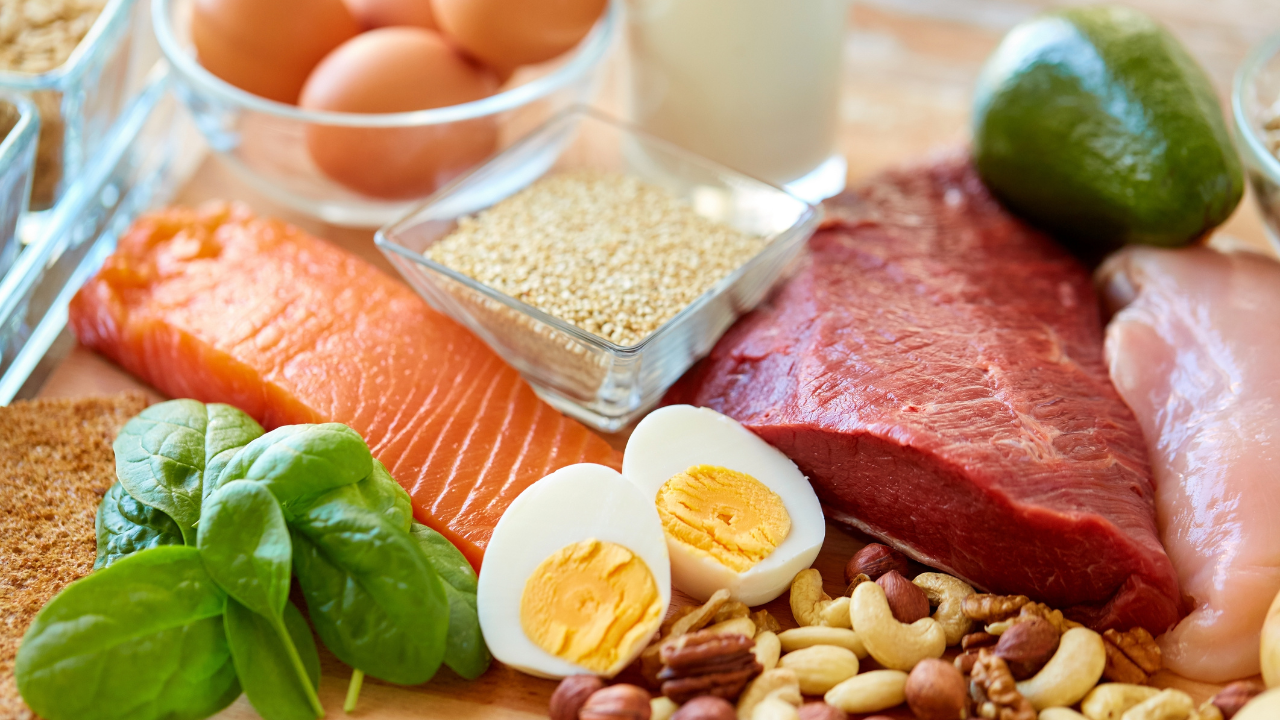What are the Collagen-rich foods?
Collagen is a body-produced fibrillar protein that gives elasticity and…

When pain strikes, it’s tempting to reach for over-the-counter medications—but nature has already provided powerful remedies. From reducing inflammation to easing cramps and soothing sore muscles, these natural painkillers offer effective, science-backed relief without side effects. Let’s explore how these foods can support your body’s healing process.
1. Dill: Relieves Stomach Cramps
Dill isn’t just a flavorful herb; it’s also a digestive aid. Its antispasmodic properties help relax intestinal muscles, relieving stomach cramps, bloating, and indigestion.
Key Benefits:
Soothes upset stomachs and menstrual cramps.
Reduces gas and bloating.
Supports gut health with antibacterial compounds.
Pro Tip: Brew dill seeds into a tea for quick relief from stomach discomfort.
2. Garlic: Natural Anti-Inflammatory for Joint Pain
Garlic is packed with allicin, a compound with strong anti-inflammatory and immune-boosting properties.
Key Benefits:
Reduces joint pain and stiffness caused by arthritis.
Fights inflammation and boosts circulation.
Supports heart health and immunity.
Pro Tip: Eat raw or roasted garlic daily, or add it to soups and dressings for anti-inflammatory support.
3. Ginger: Calms Menstrual Discomfort
Ginger has been used for centuries to soothe pain, especially related to menstrual cramps and muscle soreness.
Key Benefits:
Acts as a natural pain reliever by reducing prostaglandins that trigger cramps.
Improves circulation, providing warmth and relief to tense muscles.
Reduces nausea and bloating.
Pro Tip: Sip ginger tea or add fresh ginger to smoothies and stir-fries for natural pain relief.
4. Broccoli: Fights Chronic Pain with Antioxidants
Broccoli is rich in sulforaphane, a powerful antioxidant that reduces inflammation and neutralizes toxins in the body.
Key Benefits:
Eases symptoms of arthritis and chronic pain.
Supports detoxification and reduces oxidative stress.
Boosts bone and joint health with calcium and vitamin K.
Pro Tip: Steam or roast broccoli to preserve its nutrients and enhance flavor.
5. Mango: Soothes Sore Throat
Mangoes are high in vitamin C and enzymes that soothe irritated throats and boost immunity.
Key Benefits:
Reduces inflammation in the throat.
Provides hydration and nutrients for faster recovery.
Supports collagen production for tissue repair.
Pro Tip: Blend mango into smoothies or eat it fresh to ease throat discomfort.
6. Strawberries: Reduces Inflammation in Muscles
Strawberries are loaded with vitamin C and polyphenols, which reduce muscle soreness and speed up recovery.
Key Benefits:
Reduces inflammation and oxidative stress after workouts.
Supports collagen production for muscle and joint health.
Provides hydration and electrolytes for muscle recovery.
Pro Tip: Add strawberries to yogurt, oatmeal, or smoothies for a refreshing anti-inflammatory boost.
7. Peas: Helps with Nerve Pain Relief
Peas are a surprising source of B vitamins and magnesium, both of which support nerve health and pain relief.
Key Benefits:
Eases nerve pain by supporting healthy nerve signaling.
Provides magnesium to relax muscles and prevent cramping.
Supports energy metabolism to reduce fatigue.
Pro Tip: Add peas to salads, soups, or stir-fries for a quick nutrient boost.
8. Pumpkin: Soothes Indigestion
Pumpkin is rich in fiber and potassium, helping to regulate digestion and reduce bloating.
Key Benefits:
Soothes the stomach and promotes smooth digestion.
Reduces acid reflux and heartburn.
Provides antioxidants to calm inflammation.
Pro Tip: Enjoy roasted pumpkin or blend it into soups for digestive support.
9. Cabbage: Reduces Swelling in Injuries
Cabbage is packed with glucosinolates and vitamin K, which fight inflammation and promote healing.
Key Benefits:
Reduces swelling and bruising after injuries.
Supports detoxification and lymphatic drainage.
Provides fiber and antioxidants for gut health.
Pro Tip: Apply cabbage leaves directly to swollen areas or eat it raw in salads and slaws.
Nature’s Medicine Cabinet
These natural painkillers show us that food can be one of the most powerful forms of medicine. Whether you’re dealing with joint pain, nerve discomfort, or muscle soreness, incorporating these nutrient-dense foods into your diet can promote healing and reduce inflammation.
Listen to your body and fuel it with ingredients that not only nourish but also heal—naturally.
Collagen is a body-produced fibrillar protein that gives elasticity and…
Blog by Sherry Larson Berberine: Nature’s Secret Weapon for Blood Sugar, Inflammation & More If you’re looking for…
Blog by Sherry Larson Shilajit: Nature’s Ancient Energy Tonic for Modern Burnout We’ve all felt it—that sluggish, wired-but-tired…
Blog by Sherry Larson Celery Juice: The Gut-Healing, Liver-Loving Morning Ritual You Didn’t Know You Needed If you’ve ever felt…
Blog by Sherry Larson Milk Thistle: The Detox Defender Your Liver Has Been Waiting For Milk thistle might…
Blog by Sherry Larson The Link Between Ultra-Processed Foods and Cancer: What They’re Not Telling You Every day,…
Blog by Sherry Larson Understanding High Cortisol: Signs, Causes, and Natural Ways to Balance It Cortisol, commonly known…
Blog by Sherry Larson The Truth About Red Meat and Health: Why the Real Culprit May Not Be What You…
Blog by Sherry Larson The Hidden Dangers of Diet Cola: What You Need to Know Diet cola has…
Blog by Sherry Larson 14 Ways to Begin Healing Your Gut and Transform Your Health …
copyright © 2025 Anti-Inflammatory Approach. All rights reserved. Unauthorized reproduction, distribution, or use of any content, including text, images, recipes, or other materials on this website, is strictly prohibited without prior written permission. This website’s content is provided for informational purposes only and does not constitute medical or professional advice.